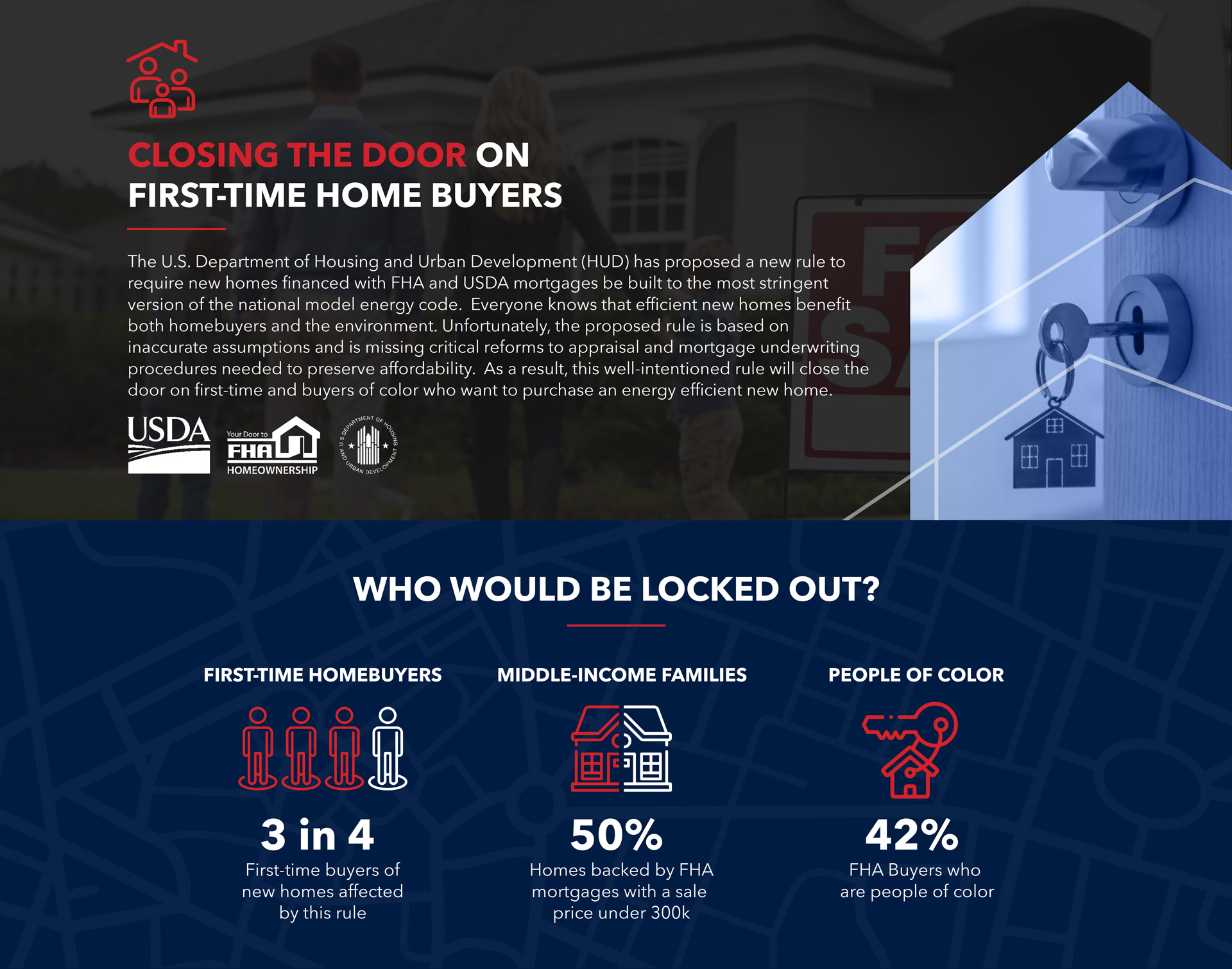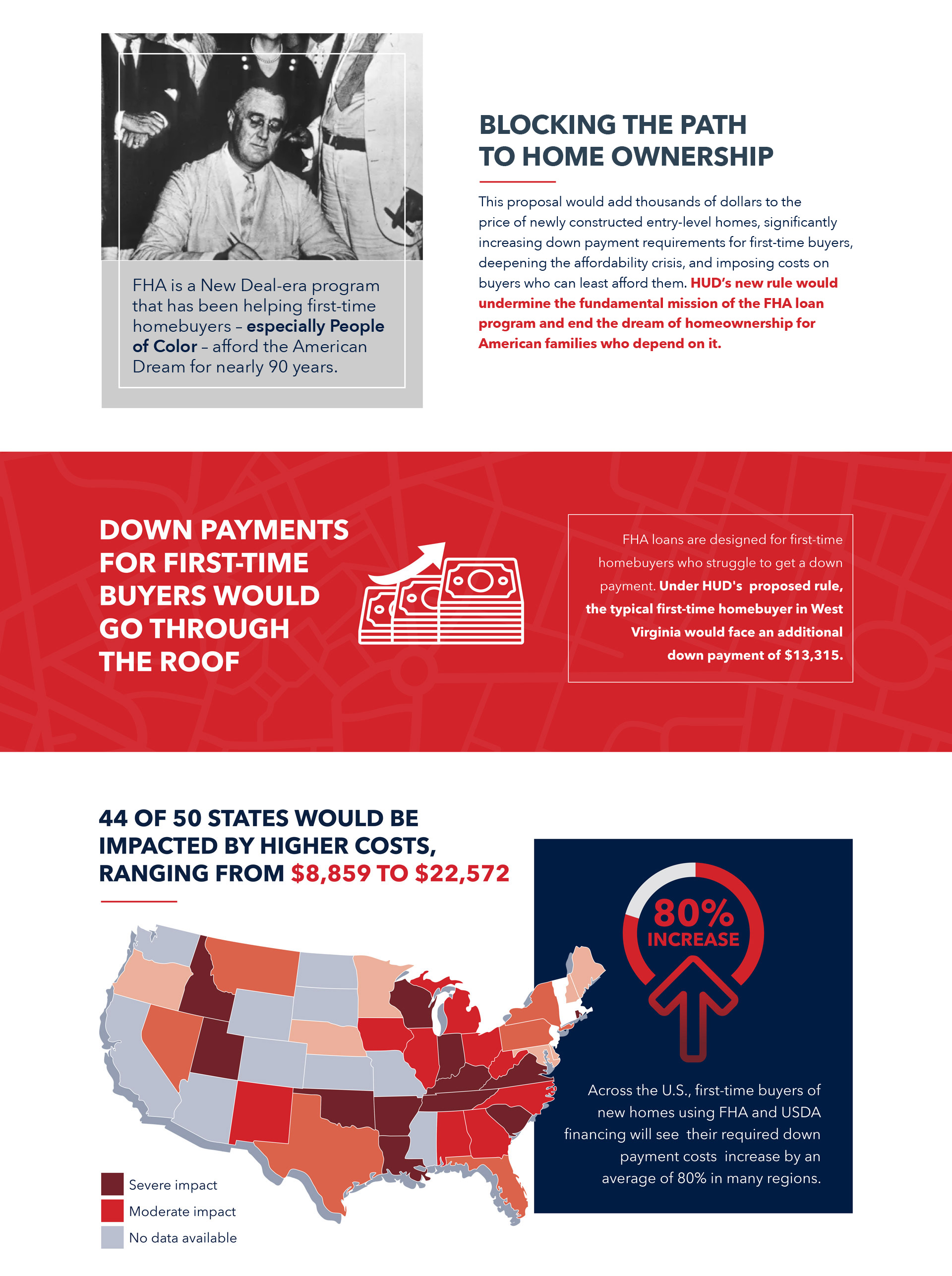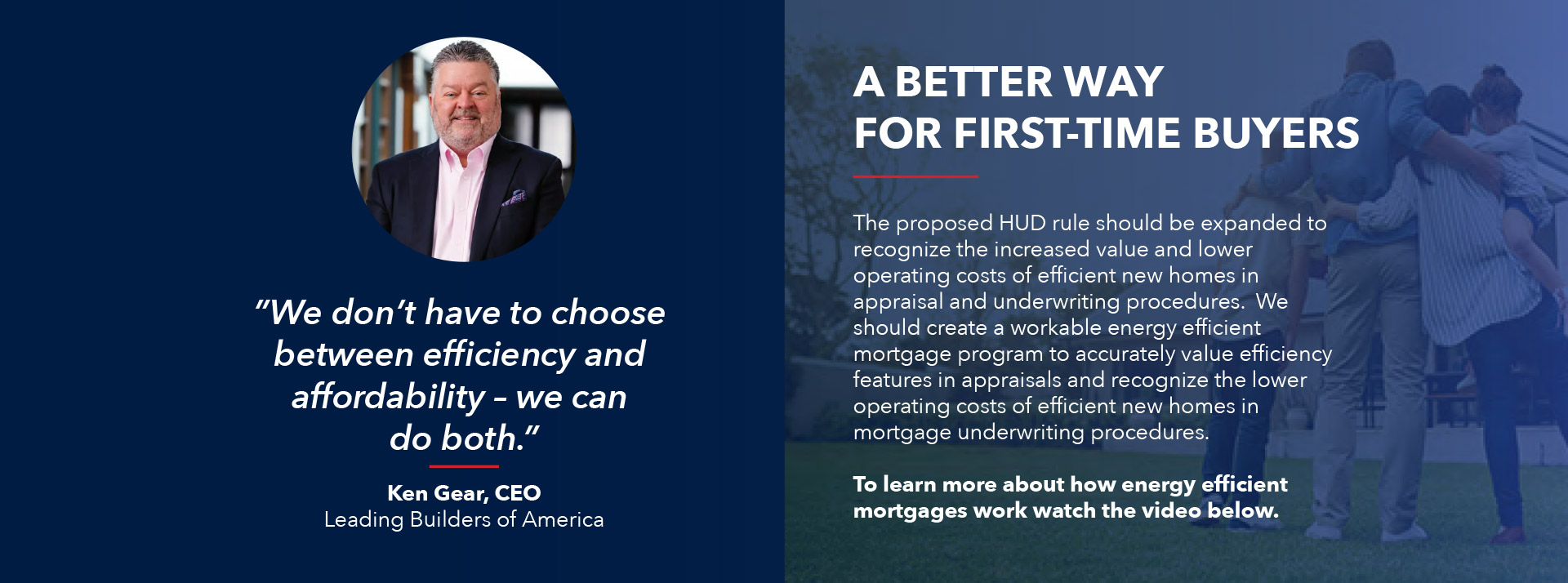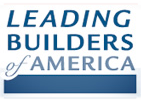-
Economic Growth
New jobs drive demand for new homes which in turn create even more jobs in construction and related fields. LBA is supportive of polices that stimulate job growth throughout our economy.
-
Advancing Efficiency In Residential Construction
LBA member companies are innovators in the field of energy and resource efficiency. Our members actively participate in the EPA’s ENERGY STAR Program as well as the DOE’s Zero Energy Ready Home program. Through these programs and others, LBA member companies play a critical role in developing and deploying new construction techniques, materials and products. We are committed to make further strides in decarbonization, energy and water efficiency and promoting mortgages that help make efficient homes affordable.
-
Promoting Capital Capacity For Home Mortgages
Ensuring a stable and affordable market for home mortgages is essential to the health of the nation’s housing market. The capacity of the federal housing programs operated by FHA and the GSE’s are of paramount importance.
-
Mortgage Interest Deduction
Since the creation of the Mortgage Interest Deduction in 1946, home ownership has grown to 66%. During this time, Americans have accumulated roughly $9 trillion in equity in their homes spurring the American economy.
Policy makers in both parties have long supported robust initiatives to encourage homeownership as a way to increase wealth for working families, strengthen communities and help people achieve the American Dream.
Having a tax deduction for mortgage interest makes owning a home more affordable. It allows homeowners to have more disposable income for savings or other household expenses. Simply put, limiting or eliminating the deduction will hurt middle-class homeowners and kill the American dream of homeownership for others.





